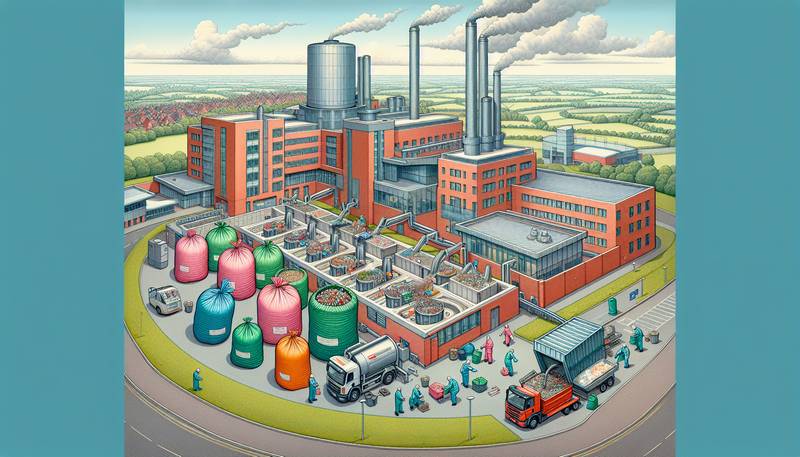Do All Hospitals Have Incinerators?

Understanding the BasicsWhen you think about hospitals, images of pristine white coats, gleaming equipment, and the occasional awkward nurse who can't help but giggle at her own jokes spring to mind. However, behind those sterile walls, a serious operation is going on—an operation involving waste management, particularly concerning how medical waste is treated and disposed of. Incinerators, those hulking beasts of fire and ash, play a pivotal role in this process. But do all hospitals actually have them? Well, the short answer is: not necessarily. Some hospitals are equipped with state-of-the-art incineration facilities, while others may opt for alternatives. It's a bit like choosing between a fancy four-course meal and a simple sandwich—both can be satisfying, but one is definitely more flamboyant!The Purpose of IncinerationAt the core of medical waste management, incineration serves a crucial purpose. Hospitals produce a plethora of waste that needs to be disposed of responsibly—ranging from bandages and surgical instruments to those leftover mystery meat trays that no one dares to touch. The primary goal of incineration is to reduce the volume of waste, kill off pathogens, and keep potential contamination at bay. If you think about it, incinerators are like the bouncers of a hospital: they ensure that only the right stuff gets through while sending the questionable grad students packing.Types of Medical WasteUnderstanding the different types of medical waste can be your first step toward a standing ovation in your next trivia night. They generally fall into these categories:- Infectious Waste: Contaminated materials like used surgical gloves and bandages.
- Pathological Waste: Human tissues and organs—something best left to the professionals to handle.
- Sharps Waste: Needles and scalpel blades that are sharper than your mother-in-law's criticisms.
- Pharmaceutical Waste: Expired drugs that are more dangerous than your high school gym coach’s whistle.
- General Waste: Non-hazardous refuse that could be theoretically picked up by your adorable neighborhood trash collector.
Incinerators primarily deal with the first three categories. After all, nobody wants a mystery bag of surgical guts hanging around, especially with the holidays just around the corner!Not All Hospitals Are Created EqualThe presence of incinerators varies widely from one hospital to another. Smaller medical facilities may outsource their waste disposal to specialized companies. These companies often have their own incineration plants or alternative methods of waste management. So, while one hospital may have a fire-breathing dragon on site, another might be sending its waste off to a far-off land, where it can be incinerated away from prying eyes. It’s like a regional food preference—some swear by their local BBQ joint, while others are die-hard fans of the gourmet vegan café.Environmental ConsiderationsThe environmental impact of incinerating medical waste is an important topic. While burning waste can effectively reduce its volume and eliminate pathogens, it also produces emissions that can be hazardous. Many hospitals are moving toward greener practices, incorporating advanced filtration systems to ensure that their emissions are as harmless as a puppy in a sunbeam. The goal is to balance waste management with environmental responsibility—after all, Mother Nature doesn't take kindly to uninvited guests at her dinner party.When Incineration Isn't an OptionNot every hospital has the luxury of an incinerator. In such cases, alternatives come into play. These can include:- Autoclaving: A high-pressure steam method that sanitizes waste before disposal.
- Microwave Treatment: Yes, you read that right! It’s like a microwave for waste, ensuring everything is cooked thoroughly before being disposed of.
- Landfilling: Sometimes the good old-fashioned landfill is still on the menu, but with strict guidelines on how it’s done.
While these methods may lack the dramatic flair of a roaring incinerator, they still do a commendable job of keeping hospitals safe and keeping the environment intact.A Whole Lot of AshThe next time you find yourself marveling at the inner workings of a hospital or chewing on that mystery meat, spare a thought for how they handle the waste. No matter how a hospital chooses to dispose of its medical refuse, they're all working toward the same goal: a safer, cleaner environment. So whether it's with a fiery furnace or a high-tech steam machine, one thing's for sure—the only thing that should be landing in your backyard is a wayward leaf, not any medical waste!
|
|







